Looking back at the best book club moments of 2022
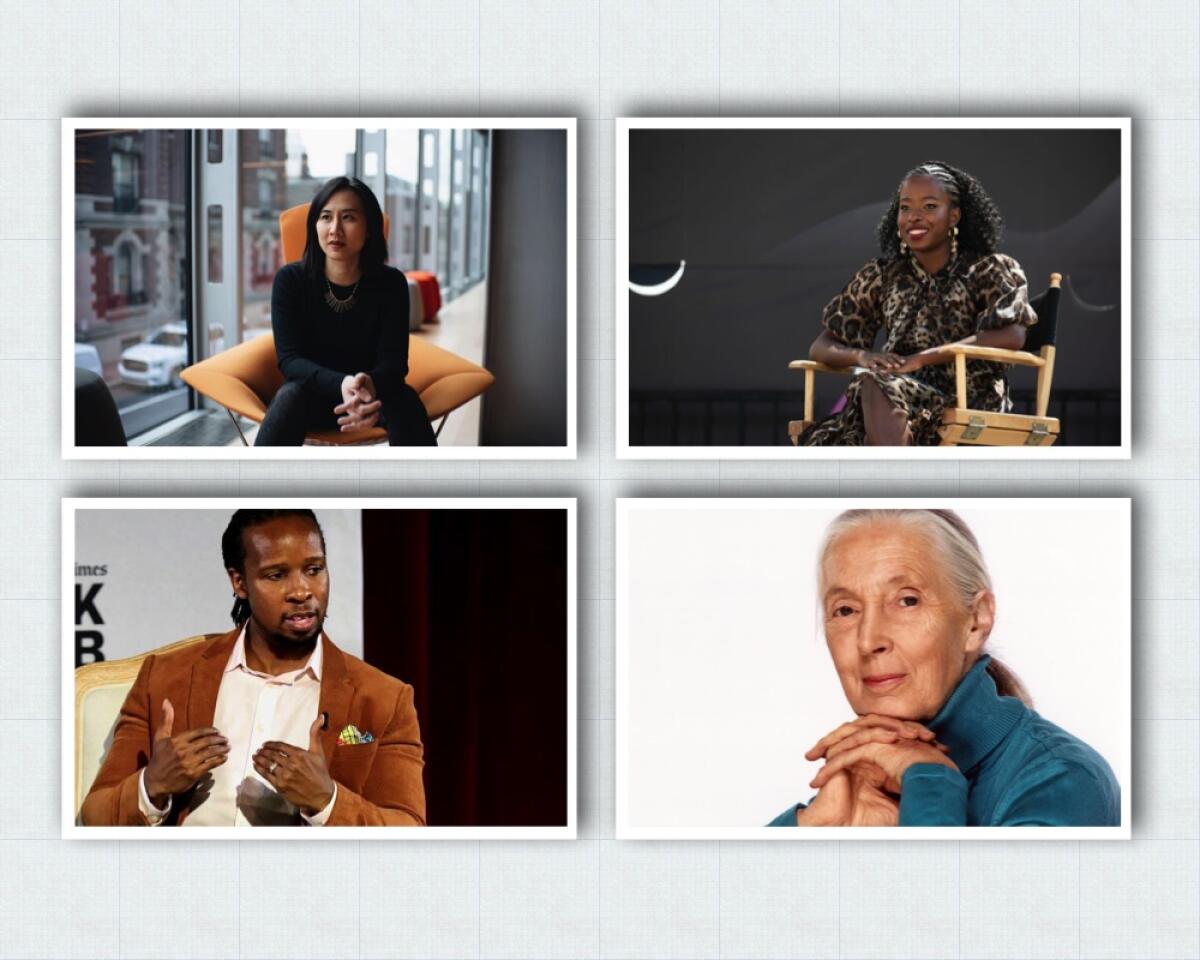
- Share via
Good morning, and welcome to the L.A. Times Book Club newsletter.
The 12 days of Christmas are upon us. This week, though, I’d like to celebrate the 12 months of book club we’ve just experienced.
Each month in 2022, we met an incredible author. The lineup included the nation’s youngest presidential inauguration poet, one of the world’s most legendary naturalists, a renowned historian who showed us how to talk about race with our kids and a Hollywood icon who revealed her own experiences as the U.S. Supreme Court toppled Roe vs. Wade.
We trekked the globe to meet unforgettable strangers, peeked inside private homes with a former maid and cooked with an ex-gangster turned chef who now runs one of L.A.’s hottest restaurants — while helping others transition from prison to restaurant careers.
We savored nonfiction, memoirs, poetry and novels, connecting readers near and far with intimate book club nights hosted in person and produced online.
And we received the best responses from our book clubbers. Here are a few comments from just this past week:
“The hour was a gift, a gem, a treasure,” wrote one reader after December’s book night with Celeste Ng. “It was an appetizer to my dinner.”
“My daughter’s school has a book club for parents led by the librarian (another heroic deed accomplished by librarians!), and we read ‘Our Missing Hearts,’” said another reader. “She prompted us to attend the event.”
“When I discovered your book club during pandemic, I took advantage of every one of them,” adds a book club regular. “They gave me a lifeline to discussions with people and authors I’d want to be familiar with. I also enjoy meeting the L.A. Times staff and what they add to the discussion. “
In case you missed an author, or are looking for a holiday season escape, here’s a recap of our last 12 memorable months of the Los Angeles Times Book Club.
January
The book: In “Maid,” Stephanie Land details her journey from single mom and $10-an-hour domestic worker to aspiring writer.
The backstory: Her essay, “Confessions of the Housekeeper,” went viral and Land began writing “Maid” on her kitchen table. Her memoir inspired a popular Netflix series. President Barack Obama included “Maid” on his summer reading list, saying Land’s story offers an “unflinching look at America’s class divide” and “a reminder of the dignity of all work.”
Keep reading: To learn more about the inequalities built into our economy and potential solutions, here are nine more books to read after “Maid.” Watch the book club discussion.

February
The book: In “The Book of Hope,” Jane Goodall addresses climate change and our collective grief over the state of the environment. She also takes readers back to the 1960s when a young woman with no research experience and no college degree spent months crawling through the forest to learn what wild chimpanzees could tell us about human evolution.
The response: Readers shared more than 400 questions in advance of book club night. Many asked: How can one person make a difference?
The takeaway: “If you think every day, ‘What positive change can I make?’ Think about what you buy: Where does it come from, how was it made, did it harm the environment in its production, was it cruel to animals, is it cheap because of unfair wages in some parts of the world or even slave labor?” Goodall says. “And if the answer is yes, don’t buy it. Eventually that is consumer pressure. And that is actually making a major change.” Watch the discussion.
March
The book: In “The Ballad of Love and Glory,” Reyna Grande follows a Mexican Army nurse and a disheartened Irish soldier during the Mexican-American War. It’s a historical novel and love story that transports us to 1846.
The backstory: Grande read more than 100 books about the Mexican-American War, an often overlooked chapter in U.S. history, in preparation for writing the novel.
The takeaway: “I became a writer because I wanted to see my experiences as an immigrant reflected in the stories I write,” Grande says. Watch the discussion now.
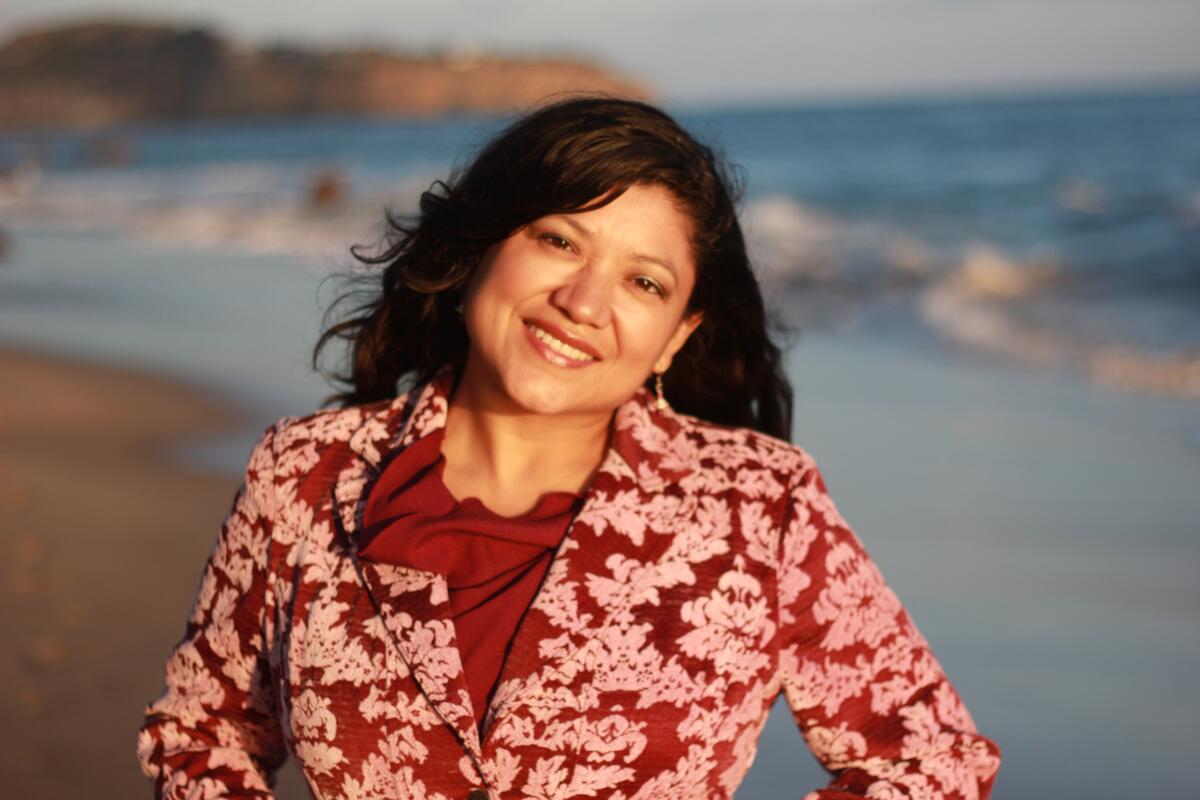
April
The book: The author of “Call Us What We Carry,” Los Angeles poet Amanda Gorman stepped onto the national stage at President Biden’s inauguration, showing millions of Americans the power of poetry and its deep relevance to all our lives.
The performance: In April, Gorman joined Times readers at the Festival of Books for her first public performance since the inauguration. The 24-year-old poet drew the 2022 festival’s biggest crowd. Watch her here.
Takeaway: “Poetry really is the language of the people,” Gorman said. “[Words] can be used both as weapons and also as instruments of hope and change and healing.”
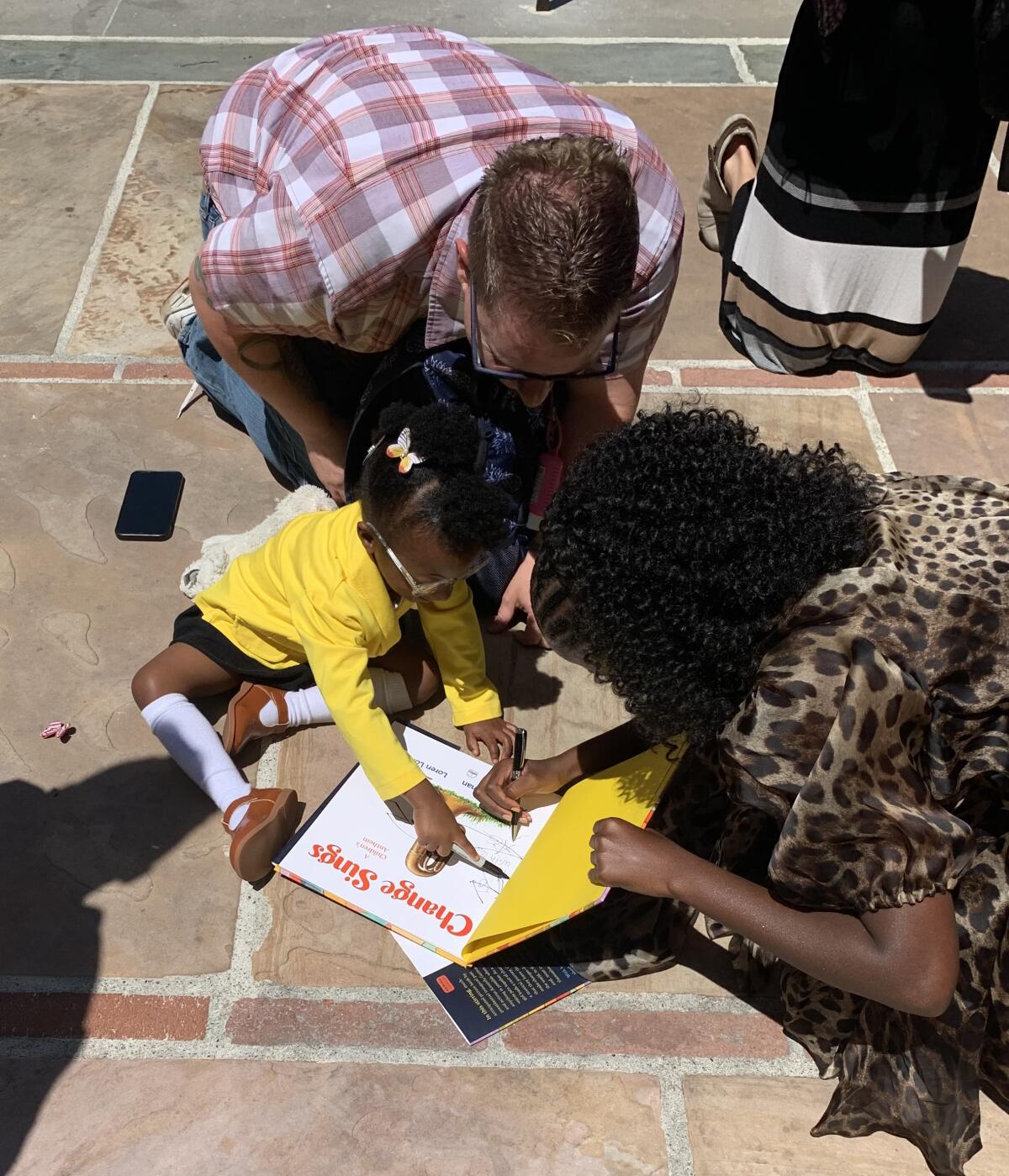
May
The book: In “Letter to a Stranger,” editor Colleen Kinder collected stories from 65 writers who detailed unforgettable encounters around the world that still haunt them.
The authors: Pico Iyer, Maggie Shipstead and Michelle Tea joined Kinder and Times travel writer Christopher Reynolds for a wide-ranging conversation about the collection and their own writing.
The takeaway: “The concept is so irresistible,” says Reynolds. “Who can read about it and not think about a person and a place, maybe an unanswered question, that linger in memory?” Watch the discussion.
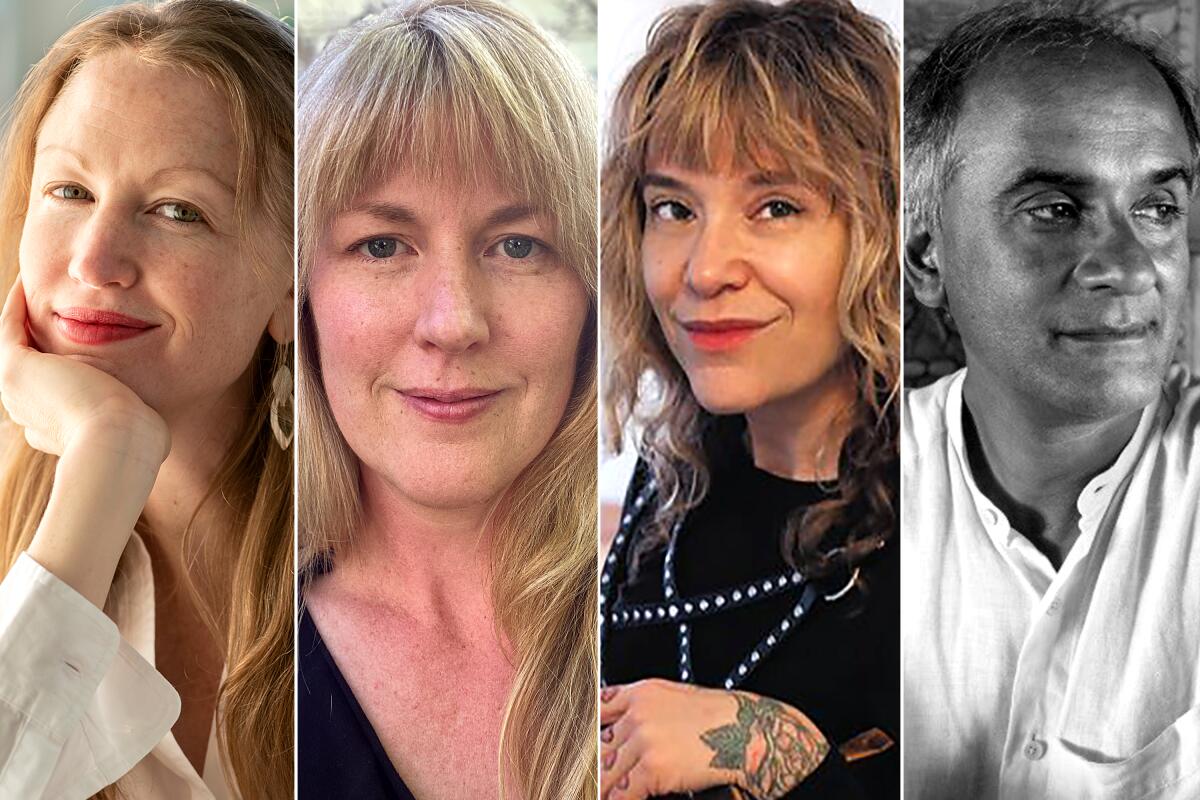
June
The book: In “How to Raise an Antiracist,” Ibram X. Kendi reached out to parents, teachers and other caregivers to address such questions as: How do we talk to our children about racism? How do we teach children to be antiracist? How are kids at different ages experiencing race?
The backstory: The book was inspired by the birth of his own daughter.
The takeaway: “Like any parent, like any mother or father, I want to first and foremost protect my child,” the 39-year-old historian and National Book Award winner said. “And when my daughter was born, I initially thought, or assumed or presumed without necessarily even thinking about it, that the way to protect her was to keep her away, if that’s even possible, from the toxicity of racism.” Instead, Kendi says his experiences and research have taught him “quite the opposite.” He says it’s never too soon — or too late — to talk with children about race.
July
The book: In her bestselling memoir, “Out of the Corner,” “Dirty Dancing” star Jennifer Grey writes about her childhood as the daughter of Hollywood stars, relationships with Matthew Broderick and Johnny Depp and how trying to conform to Hollywood’s standards of beauty affected her career.
The interview: Grey opened up this summer about the movie’s upcoming sequel, her memoir and how her own abortion changed her life. Grey’s iconic film — set in 1963, a decade before Roe vs. Wade — features a powerful pro-choice message within its coming-of-age story. A dancer at the resort where Frances “Baby” Houseman (Grey) and her family are staying is facing an unplanned pregnancy. Baby borrows money from her unsuspecting father to pay for an illegal abortion.
Takeway: “I love that part of the story line because it was really a feminist movie in a rom-com,” Grey says. “It was a perfect use of history.” Watch the book club discussion.
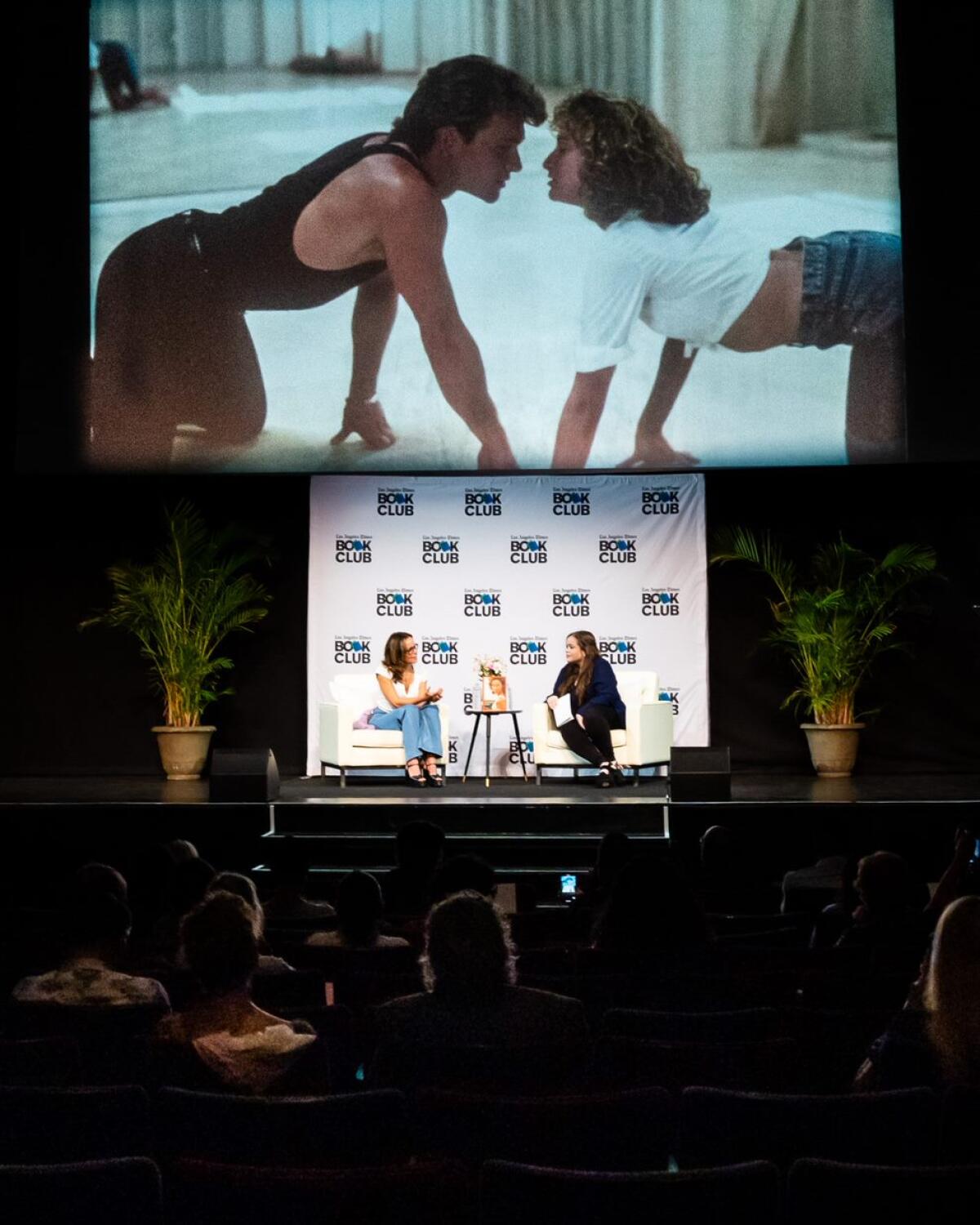
August
The book: In gritty, graphic detail, chef Keith Corbin’s “California Soul” shows readers his journey from teenage gangster to maximum-security prison inmate to co-owner of one of L.A.’s most celebrated restaurants.
The food: During a visit to The Times test kitchen, Corbin shared the recipe for Vegan California Gombo from the menu at Alta Adams.
The takeaway: “My love for food started with spending time with my grandmother in the kitchen,” he told food editor Daniel Hernandez. “It was all about big cooks and feeding the block.” Watch the discussion.
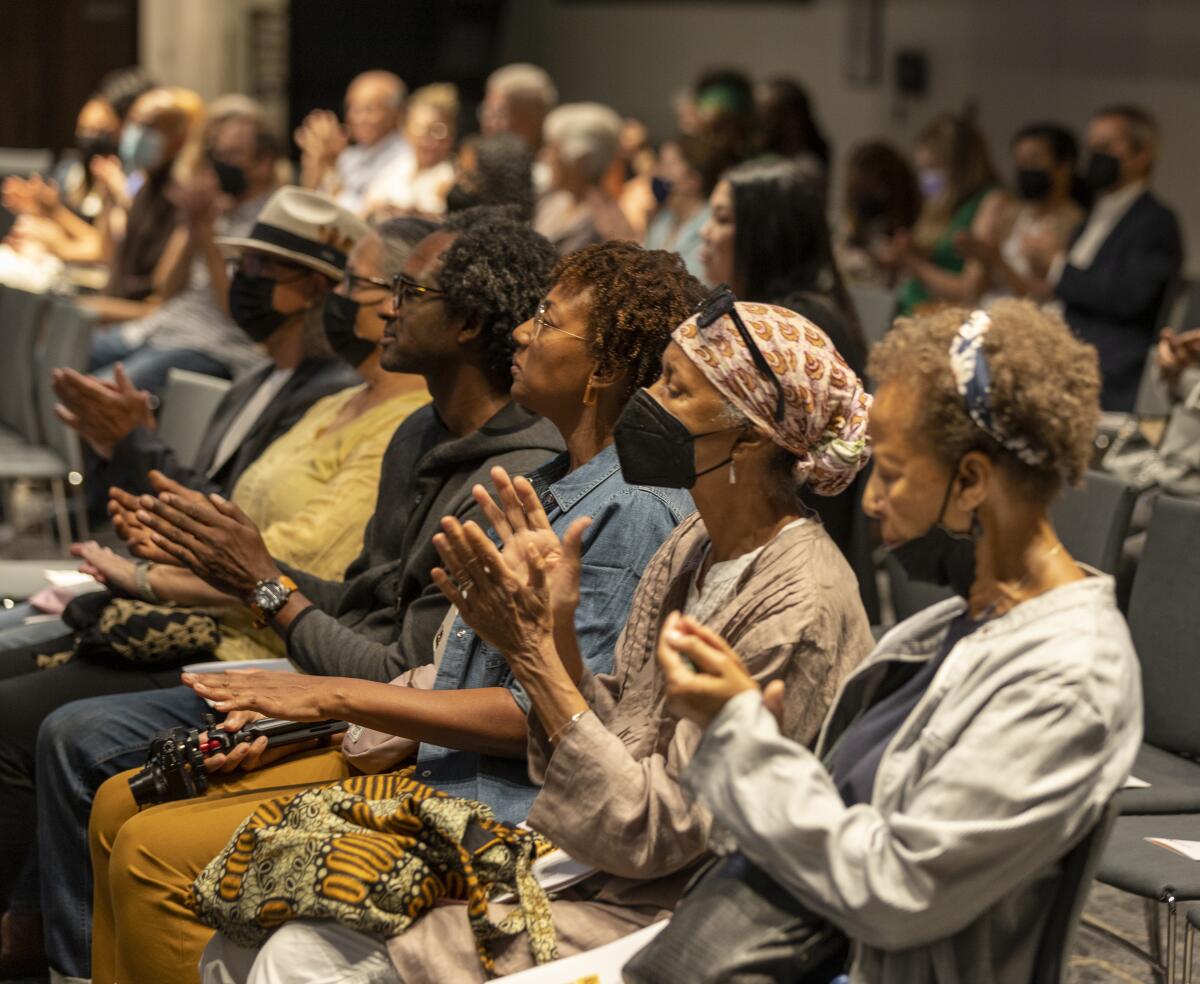
September
The book: In “The Daughter of Doctor Moreau,” Silvia Moreno-Garcia reframes the classic H.G. Wells story of terrifying human-animal hybrids as a romantic anticolonial adventure set in the Yucatán Peninsula.
The review: “The fictions of Silvia Moreno-Garcia abound in shapeshifters,” says reviewer Paula L. Woods. “And they are central to her latest novel.”
The takeaway: “I spent my early childhood growing up in the Mexico-United States border zone in Baja California,” Moreno-Garcia says. “My parents filled our home with eclectic books. They were hoarders in many ways, avid readers who didn’t care what shelf something sat on. … At any rate, I grew up to become someone who wants to be many things, perhaps everything, all at once.” Watch the discussion.
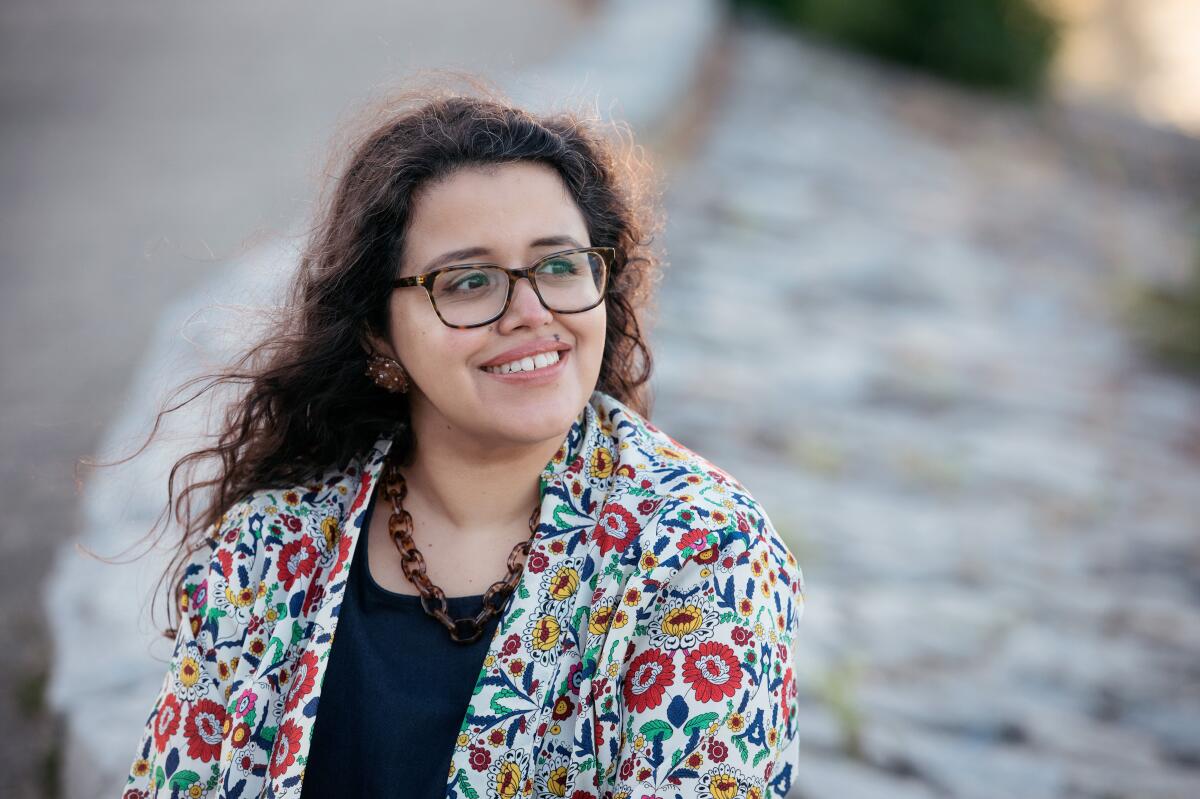
October
The book: Extinction is a running theme in much of Lydia Millet’s work. Her new novel, “Dinosaurs,” is about the rebirth of a man who seeks solitude in the Arizona desert only to find himself living next to a family in a glass house.
The issues: In more than a dozen books, Millet has emerged as a major Western voice on the environment. She tackles this subject in her fiction as well as nonfiction essays, and in her day job as chief editor at the Center for Biological Diversity.
Keep reading: “The books I love that I’m reading right now are by Dan Flores, his new one, ‘Wild New World,’ and a previous one, ‘American Serengeti.’ They should be required reading across our land,” she says. “Sweeping and historically precise, they show us what we’ve done to the Eden that America once was. And inspire us to save what’s left.” Find more eco-reading suggestions here.
Bonus book club night: During his SoCal tour, Willie Nelson stopped by for a virtual conversation about his new book, “Me and Paul,” the story of a 70-year-old friendship with drummer Paul English that inspired and saved his life. “I’m at the age when I’ve long stopped fussing around and started focusing on the stuff that matters,” he says.
November
The book: Author Percival Everett writes stories that play with genre, language and our culture’s assumptions about race and gender. His latest, “Dr. No,” is a cross-genre caper with a mathematician and billionaire supervillain.
The backstory: An English professor at USC, Everett has gained international accolades for his 34 books; his previous novel, “The Trees,” was a 2022 finalist for the Booker Prize. At book club night, Everett said he still writes all of his books in pencil.
Takeaway: “I love arithmetic; it’s fascinating to me,” he says. “I wish I were a mathematician. I would be if I were smart enough to understand a lot of the stuff I read, but I come away with nothing.”
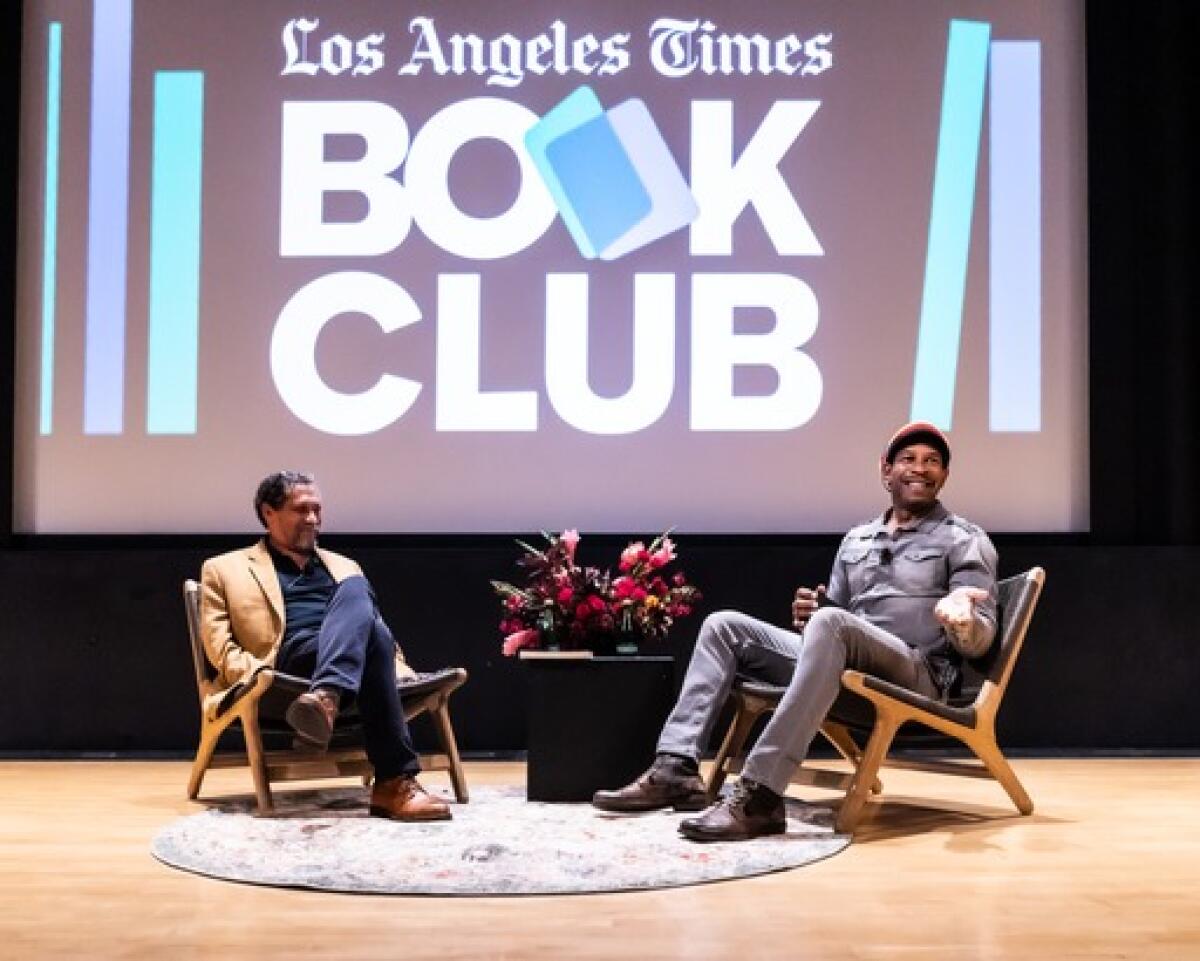
)
December
The book: “Little Fires Everywhere” author Celeste Ng returns with “Our Missing Hearts,” about a 12-year-old boy named Bird growing up in a near future beset by fear and repression. When Bird receives a mysterious letter, he seeks help from a librarian to find his missing mother. It’s literary fiction with a dystopian vibe, weaving in anti-Asian violence and family separation issues
The backstory: Ng was thinking about a book exploring the relationship between an artistic mother and her adolescent child. Then, the 2016 presidential election happened and she changed gears.
The takeaway: “Libraries are much more radical than we give them credit for,” Ng says. “You can go in and any piece of information is available for you. That was a powerful idea for me as a child.” Watch the discussion.
Thank you for being part of our community book club and its year of firsts, bests, moving moments and delights. As always, it’s your participation and support that makes our book club so special. Please reach out and tell us what you’d like to read together in 2023. Send your comments to bookclub@latimes.com.
If you enjoy these community discussions: Please consider becoming a supporter of the new Los Angeles Times Community Fund, which supports our signature literary programs: the L.A. Times Book Club and annual Book Prizes.
Sign up for our Book Club newsletter
Get the latest news, events and more from the Los Angeles Times Book Club, and help us get L.A. reading and talking.
You may occasionally receive promotional content from the Los Angeles Times.




